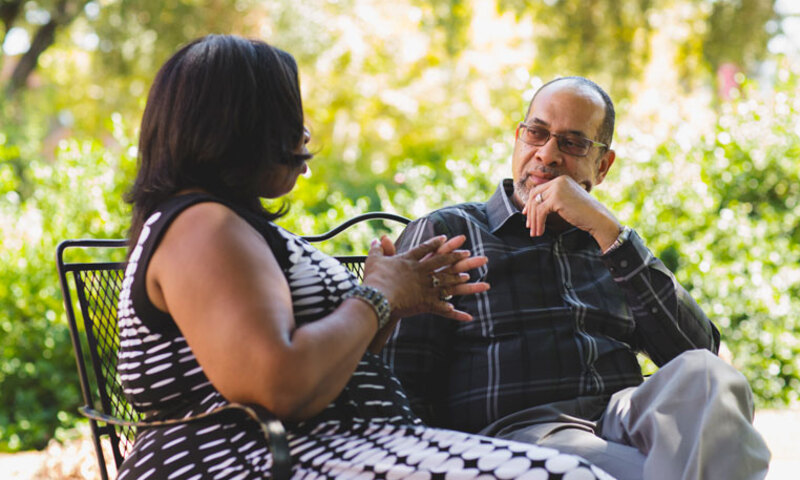How Confession Transforms Marriage

Why do we resist confessing?
Most of us are uncomfortable admitting our fallibility which is rather odd because we’re all imperfect. The apostle John challenges our reluctance: “If we claim we have no sin, we are only fooling ourselves and not living in the truth” (1 John 1:8). Since the Lord, who is omniscient, is aware of our missteps, by confessing our sins, we acknowledge what God already knows to be true.
Some of the hurdles to confession include:
• Internal barriers such as defensiveness, shame, embarrassment, and pride.
• We don’t really want to stop sinning.
• The cultural pressure to present well at any cost.
• We don’t want to hurt someone’s feelings or make anyone feel bad. (If you’ve had an affair and tell your spouse, you are going to hurt them, but the truth is, you’ve already hurt them.)
What needs to be confessed?
Christopher and I confess obvious sins (especially anything we are tempted to hide), as well as the stealthy sins of the heart (such as greed, bitterness, sloth, and resentment). As I write in Making Marriage Beautiful, “Most of us avoid the jail-worthy sins such as tax fraud and drug peddling but silently struggle with the stealthy sins of the heart. . . . No one is going to call 911 on us for these sins, but they are not without cost and should not be omitted in our confessions.”
Why should we confess?
Why would any of us willingly admit our sins, especially the ones we can hide? Because denial thwarts transformation. If we value the appearance of health and wholeness over the real deal, image becomes everything. But if we’re serious about wanting to have a dynamic marriage, we have to move through that resistance and become transparent truth tellers. David Tripp writes in What Did You Expect?, “No change takes place in a marriage that does not begin with confession.”
I grew up in a family that differentiated between telling real lies and telling white lies. We lied to cover up my father’s addiction. We lied when we were angry. Lies are lies. They deaden our conscience, prevent our spouse from fully knowing us, and provide no impetus for us to stop sinning. The Bible unequivocally communicate that God hates lying (e.g., Exod. 20, Prov. 11:1, Eph. 4:25, Col. 3:9). In my experience, there’s little difference between lying and refusing to confess.
Additionally, confessing our sins and admitting our areas of temptation help us to remain faithful. When I was attending a leadership conference years ago, I found myself attracted to another participant. Noticing that someone is attractive is not a sin. However, I spent a bit too much time thinking about and chatting with this man. I assumed I could deal with the crush on my own—just me and God. After three days it was clear this was not working so I confessed to my small group. Though I felt mortified, they simply heard my confession, spoke forgiveness over me, and blessed me with the ability to be faithful in mind and body to my husband. By the end of that day, the crush had lifted. Telling the truth did what nothing else could.
How to confess
Over the years, we’ve learned how to do this well. Here’s a few guidelines:
-
Take ownership rather than blaming or excusing. In terms of causality, it matters what was going on that preceded the sin but when you confess, avoid contextualizing. The confession should take 30 seconds. The conversation after that might take two hours.
-
Be specific. Admitting, “I watched online porn for three hours after you went to bed on Saturday night” is better than, “I watched some things I shouldn’t have the other day.” You can skip the gory details.
-
After you have confessed, listen well and choose to be empathetic. You might ask, “How did my sin impact you?”
-
Stay humble and vulnerable. Don’t get defensive—even if the other person gets mad.
-
Apologize fully.
-
What is revealed in a confession should not become fodder for casual conversation with others the next day. You will need to process some things with someone else but make sure you talk about this with your spouse first.
-
The contents of a confession should never be used to browbeat or shame your spouse.
Despite the many barriers and general awkwardness of confession, when we incorporate this discipline into our marriage, we declare our allegiance to the kingdom of God over our allegiance to the kingdom of self. Confession is one way of saying, “Let your kingdom come, in my life and in my marriage.”

